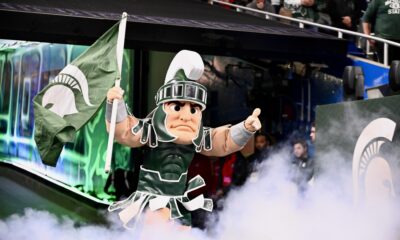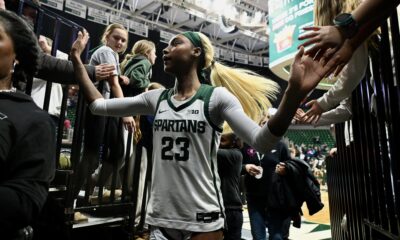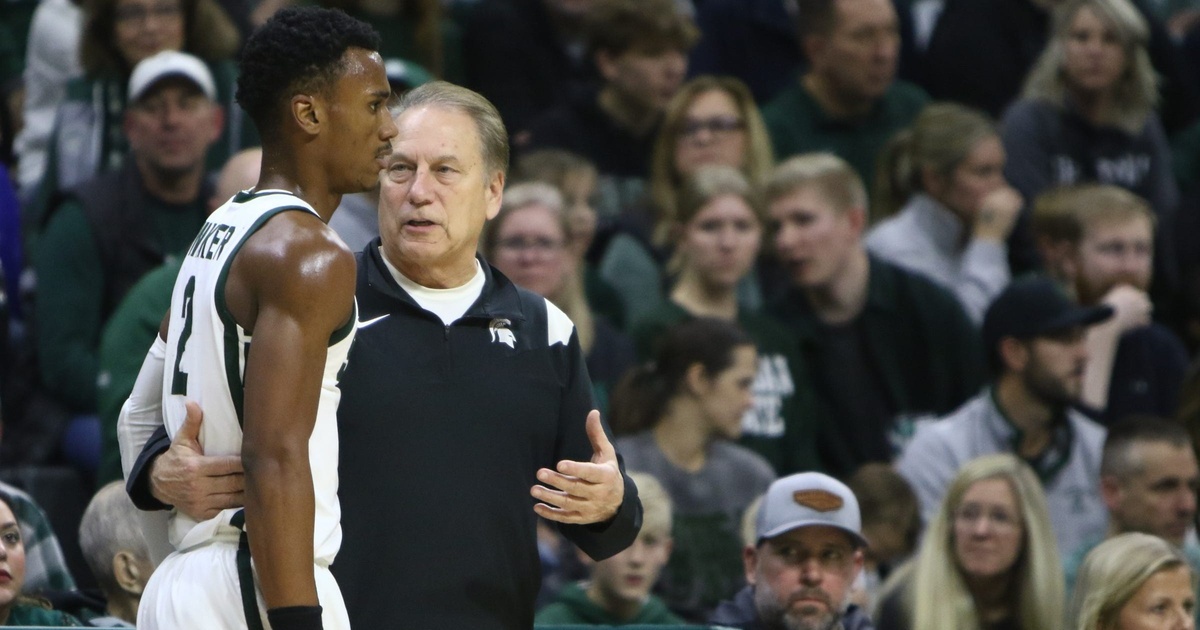Tom Izzo is a Hall of Famer and one of the best college basketball coaches in the nation, but does he need that second title?
Tom Izzo’s second national title… he wants it, the fans want it, the players want it, basically everyone involved in MSU athletics wants it. It has been a talking point for as long as I can remember; when will Izzo get his second title to cement himself as one of the best college coaches of all time?
Izzo boasts a career record of 678-271, good for a .714 win percentage. He may not be in the top 20 in career wins, but the thing that stands out for Izzo is that he has done it all at Michigan State. He was thrown into the gauntlet from day one as a head coach with no prior head coaching experience at any mid-majors to help boost his win percentage.
Career records and accomplishments speak for themselves, but there has always been an argument saying he needs another national title to cement himself as one of the best to ever do it.
I disagree, however. Izzo has already done plenty to prove he is one of the best of all time.
First off, Izzo has the most career wins at one single Big Ten school of all time. He trails Bob Knight in career conference wins, but I would dare say he breaks that record as well before it’s all said and done. Izzo also holds one national title, eight Final Fours, 10 regular-season Big Ten titles, six conference tournament championships, and a current streak of 24 straight NCAA tournament appearances. While these are just the team accolades, Izzo has also been awarded national coach of the year twice, and Big Ten coach of the year three times.
I think all of those accolades are enough to cement Izzo as an all-time great, but there is still that nagging second national championship. I believe that is an invalid argument due to the fact that winning a national title is statistically so challenging to do.
Let me break this down.
Hypothetically, imagine the Spartans are the No. 1 overall seed in the NCAA tournament, meaning they would be “favored” in every game they play. The first game is against the 16 seed, giving the team about a 99 percent chance to win. The second game will be against the 8-9 seed, being generous I’ll say an 80 percent chance to win that one. Reaching the Sweet 16, things get significantly harder. Going strictly chalk, the next game would be against a No. 4 seed, and being generous I would pin that at a 65 percent chance to win. The Elite Eight would be against the No. 2 seed, so let’s say it’ll be a 55 percent chance to win. Following that is the Final Four against another No. 1 seed — maybe a 52 percent chance to win. Finally, the national title game against the second-best No. 1 seed, probably a 51 percent chance to win to keep things clean.
Looking at this from a purely mathematical perspective, this would give the hypothetical best team in college basketball a 7.5 percent chance of winning the whole thing, and I feel as if the percentages I gave were quite generous. Adding on to this, it is not very often that Michigan State receives a No. 1 seed, with their last one post-2001 coming in 2012, so the mathematical odds are generally much worse.
Stepping away from a mathematical perspective, basketball is also such a strange game. The NCAA tournament’s win-and-advance format promotes chaos. Any given player on any given team can get the hot hand one night and carry their team to a win. I won’t point out specific games to avoid negative feelings, but Spartan fans know this to be true more than any other collegiate fanbase. We’ve also had our moments as well, most recently the Final Four run as a No. 7 seed fueled by the elite play of Travis Trice.
With all of this being said, the NCAA tournament is incredibly difficult to win and that’s why you don’t see the same schools and the same coaches winning it time and time again. Success can be measured by things other than national titles (i.e. everything I’ve pointed out in recent paragraphs).
Let’s not forget that the players we are dealing with aren’t professionals. These are kids who are trying to figure out more than just how to win basketball games in college.
Something also needs to be said about the relationships with current and former players. Yes, a coach’s job is to win games, but Izzo will be the first to tell you that coaching goes much further than the results on a basketball court. The long-lasting relationships that Tom Izzo has created with his players and the fact that Spartan fans always see former players showing love for Izzo and constantly coming back to campus should speak volumes in cementing Izzo as one of the best and most influential coaches in college basketball history.

 FOOTBALL1 week ago
FOOTBALL1 week ago
 BASKETBALL1 week ago
BASKETBALL1 week ago
 BASKETBALL1 week ago
BASKETBALL1 week ago
 BASKETBALL2 weeks ago
BASKETBALL2 weeks ago
 MORE SPORTS2 weeks ago
MORE SPORTS2 weeks ago
 MORE SPORTS1 week ago
MORE SPORTS1 week ago
 MORE SPORTS2 weeks ago
MORE SPORTS2 weeks ago
 MORE SPORTS2 weeks ago
MORE SPORTS2 weeks ago








